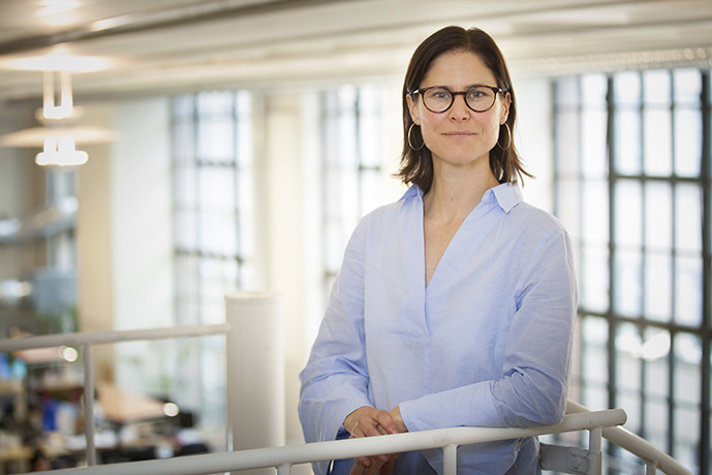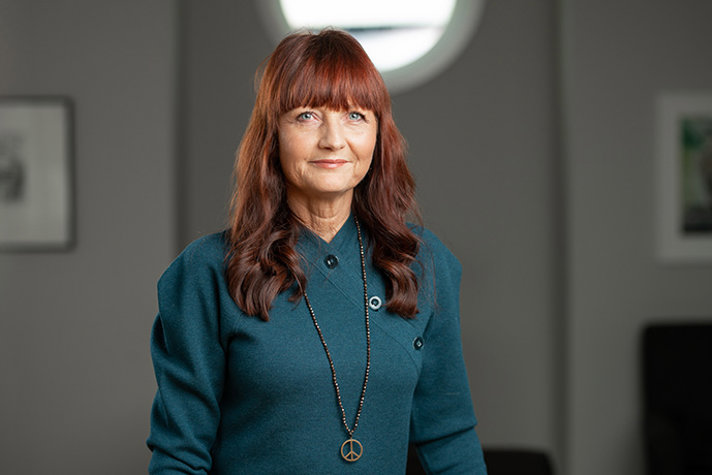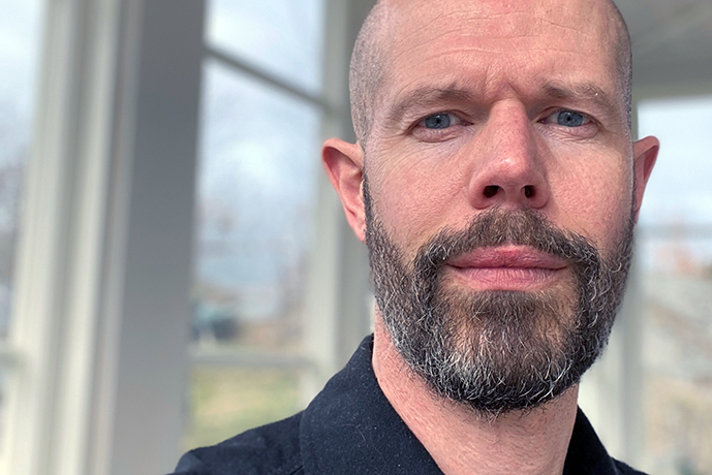Transition Leap: a result of the innovation partnership programme Climate neutral industry
Published
A paper on how to link the climate transition with skills investments in the innovation partnership programme Climate neutral industry, ultimately led to Kickstart Climate and Transition Leap.
Since the start of the year, Vinnova has been funding a pilot study for a Transition Leap, that will report its preliminary findings in June and release a final report in August 2021. The pilot study is a result of work within the innovation partnership programme Climate neutral industry, and the Knowledge/skills working group.
Minister for Business, Industry and Innovation, Ibrahim Baylan, is the minister responsible, and has a special remit as coordinator of the innovation partnership programme. The partnership groups and their members work together to develop new ideas and proposals for solutions in response to societal challenges, to equip Sweden for the future and strengthen our competitiveness.
“The Transition Leap is a great example of how innovation partnership programmes as a working method can genuinely help solve identified societal challenges. I look forward to hearing the results of the pilot study, as a key element of how we should address the knowledge and skills issue associated with climate challenge,” says Ibrahim Baylan.
Knowledge/skills working group
Marie Nilsson, President of the Swedish industrial workers’ union IF Metall, and Johanna Sandahl, President of the Swedish Society for Nature Conservation, are both members of the Climate neutral industry partnership group. In spring 2020 they produced a basis for discussion for the partnership group, which resulted in the formation of the Knowledge/skills working group.

“Society will undergo extensive and radical changes over the course of the next decade. The climate transition means that all use of fossil energy needs to cease, and businesses that cause significant emissions of greenhouse gases will need to make adjustments. Both production and consumption patterns need to fundamentally change,” explains Johanna Sandahl, adding:
“In practice this will mean that jobs and skills requirements will need to move both within and between sectors. Skills development will be needed in this work on several different levels – in terms of breadth and depth, and in both the near future and the long term.”
Access to skills crucial for climate transition
“To successfully manage the transition of businesses, there has to be a firm belief that we can meet these needs. That’s where access to skills is absolutely crucial,” adds Marie Nilsson, offering some examples:
“Volvo are talking about substantial skills requirements for the transition to electrification. Northvolt’s investment in manufacturing and research in Skellefteå and Västerås is about access to skills. LKAB are planning extensive initiatives for fossil-free production. We recently received fantastic news about a new climate-smart steelworks in Boden. These are all major investments that will be of huge benefit to the climate, and that are happening on the assumption that we can meet skills needs. So expertise is an issue of making the climate transition a reality.”

Marie Nilsson thinks the skills issue is also a tangible expression of the social dimension of the climate transition. People should be regarded as a resource in the transition, and not risk being divided into winners and losers. Those working in these industries should therefore be given the chance to upgrade their skills and perhaps change job.
“The climate transition should be associated with job security; it should be a competitive transition offering stimulating jobs. Not a matter of closures and unemployment,” says Marie Nilsson.
In their paper, Marie Nilsson and Johanna Sandahl discuss how to link the climate transition with investments in skills ranging from research to professional development opportunities for industry employees. Work during the autumn in the Knowledge/skills working group resulted in the group concluding that there was a need for a ‘Transition Leap’ using the same methodology as the DigiLift initiative for digitalisation, and to build on what worked well there.
Pilot study for Transition Leap
Andreas Johansson is Head of Research and Business Development at RISE Research Institutes of Sweden, and is responsible for the Transition Leap pilot study. By June this year, the pilot study will have produced an overview of the content and direction of development for ongoing work with the backing of the various parties intending to contribute to implementation. These include RISE, IF Metall, Fossil Free Sweden, the Swedish Agency for Economic and Regional Growth, Vinnova, the Association of Swedish Engineering Industries, the Swedish Federation of Business Owners, the Swedish Society for Nature Conservation, IUC and the Chamber of Commerce and Industry of Southern Sweden. The pilot study will also have interacted with, and encouraged the sharing of insights regarding the green transition from 100 companies.
“Basically, Transition Leap is about building capabilities to accelerate the climate transition, and the ambition is to create a national programme to help companies make adjustments. My role and that of RISE is to lead the work of designing the programme, but really it’s about collaborating with a number of different companies, organisations, agencies, departments and regions,” explains Andreas Johansson.

“I hope the work will lead to a much greater understanding of, and interest in the opportunities presented by the climate transition, and that more business models, value chains and companies will be compatible with the 1.5⁰C target.”
Andreas Johansson regards innovation partnership programmes as a pioneering approach to collaborative working and encouraging development at national level.
“In order to solve complex challenges we need to find new ways of working and forums for discussion that include lots of different perspectives without losing momentum. I think innovation partnership programmes have great potential in this respect and could be highly significant, although I think many people are still a little unfamiliar with how innovation partnership programmes can be used.”
Innovation partnership programmes as a workshop
Viveca Bergstrand is Project Manager for the innovation partnership programme Climate neutral industry, and was involved in Kickstart Climate a few weeks ago when work on Transition Leap began to take off:
“It’s inspiring to see the idea of innovation partnership programmes being like a workshop coming to fruition; seeing people with different skills, experience, networks and perspectives on key issues coming together to contribute to solutions to societal challenges.”
Johanna Sandahl summarises her view of the innovation partnership programme:
“When actors from different organisations converge to work jointly towards an established goal, it becomes clear that we all have important parts to play. It is evident and uplifting to see this resolve among all the contributing parties to achieve the shared goal. No-one has all the knowledge or all the solutions, but together we can create a holistic picture and identify the most important things to be done.”
The Government’s innovation partnership programmes
The objective of the Government’s innovation partnership programmes is to identify innovative solutions to major challenges facing society and to contribute to Sweden’s competitiveness. The themes are based on Sweden’s strengths and on the 2030 Agenda for Sustainable Development:
- Climate neutral industry
- Skills supply and lifelong learning
- Digital transformation of industry
- Health and life sciences

 X
X